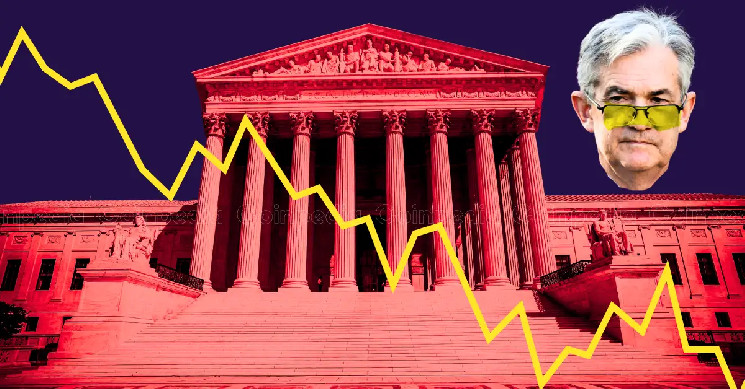The crypto market is increasingly optimistic about the potential for the US Federal Reserve (Fed) to cut interest rates by 0.25% in December, with the CME FedWatch tool showing the likelihood rising to 74.5%. This shift reflects growing confidence among investors that the central bank will make a move during its upcoming meeting on December 17-18. Such a rate cut would mark the third reduction this year, signaling a more accommodating monetary policy that could stimulate economic activity. As the Fed’s current interest rates sit between 4.5% and 4.75%, a further cut could encourage consumers and businesses to borrow more due to cheaper loan costs, potentially bringing notable shifts in market behavior, especially in high-risk sectors like cryptocurrencies.
For the crypto market, particularly Bitcoin, a cut in interest rates could serve as a catalyst for increased investment and market activity. Lower interest rates typically make borrowing more attractive, leading to higher consumer spending and investment. In this environment, investors may become more willing to take on risk and seek higher returns in volatile assets such as cryptocurrencies. Historically, the crypto market tends to respond positively to rate cuts, as these conditions foster a climate conducive to speculative investments. The implications of a rate cut would not only indicate a shift towards a more supportive economic environment but may also encourage retail and institutional investors to increase their exposure to assets like Bitcoin.
Investor sentiment around the Fed’s potential actions has been corroborated by notable financial strategists. For instance, Marko Papic, Chief Strategist at BCA Research, forecasts that the Fed will likely proceed with rate cuts in December, alongside a prediction that the US dollar might peak by mid-2025. He suggests that economic growth goals under certain political circumstances could lead to disillusionment and thus influence currency trends. This insight provides a broader context for understanding why the market anticipates changes in interest rates and how those changes might reverberate through financial markets focused on growth and risk.
Within the Federal Reserve itself, officials are communicating that the prospect of a rate cut is on the table. Governor Christopher Waller indicated his inclination toward supporting a reduction, emphasizing that such a decision will depend heavily on forthcoming economic data, including inflation rates and job market conditions. Similarly, New York Fed President John Williams has hinted at a gradual approach to lowering interest rates, though he has not provided clear timelines. These statements highlight the sensitivity of the Fed’s decision-making process and emphasize the importance of continued economic indicators as determinants of future monetary policy.
The anticipation of a rate cut has coincided with substantial gains in Bitcoin’s price this year, with the cryptocurrency more than doubling in value. Analysts are buoyant, with many predicting that Bitcoin could surge beyond the $100,000 mark by the end of 2024. This optimism correlates with the historical trend of Bitcoin benefiting from favorable monetary conditions, where lower interest rates could further amplify its attractiveness as a riskier asset among investors. The prevailing economic climate, combined with the potential for renewed monetary easing, may continue to fuel upward momentum in Bitcoin’s valuation.
In summary, the narrative surrounding the potential interest rate cuts by the Federal Reserve is shaping the outlook for the crypto market. With increasing investor sentiment leaning toward the likelihood of a December reduction, the implications for risk assets like Bitcoin could be profound. The interrelationship between monetary policy and crypto values underscores a critical juncture where economic conditions and Fed actions may intertwine, propelling both investor behavior and market dynamics in significant ways. As the situation evolves, the focus will be on how economic data influences Fed decisions and subsequently impacts the trajectory of cryptocurrencies in the broader financial landscape.















